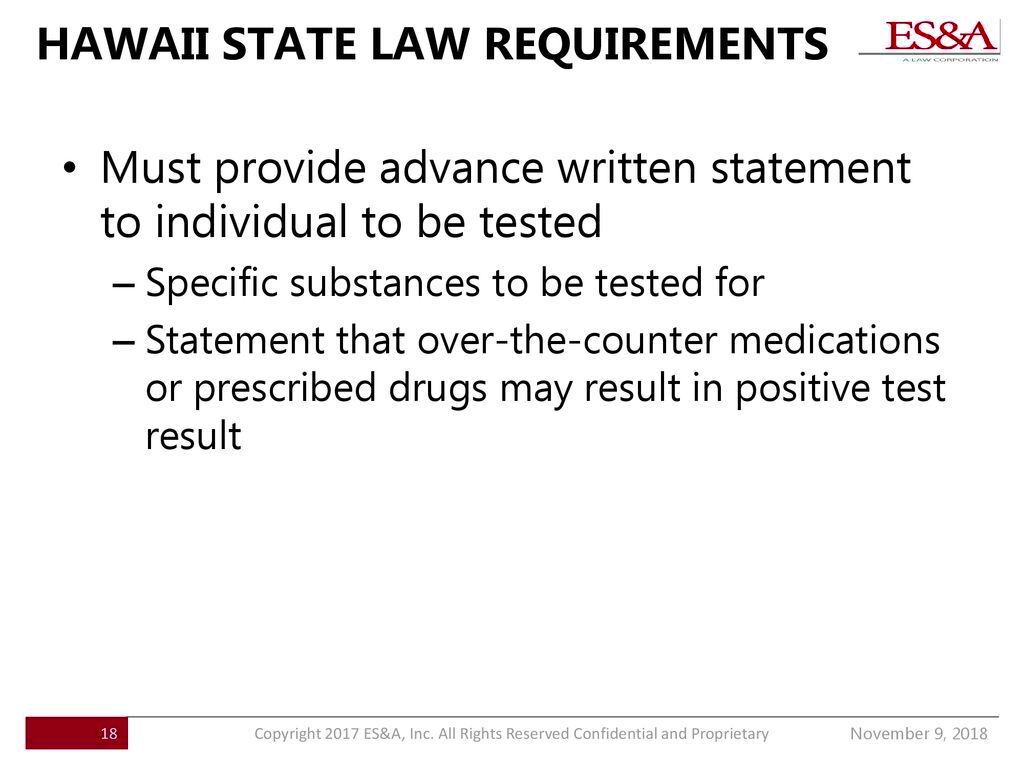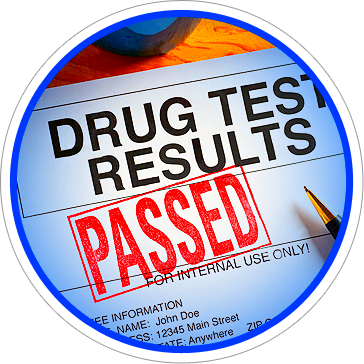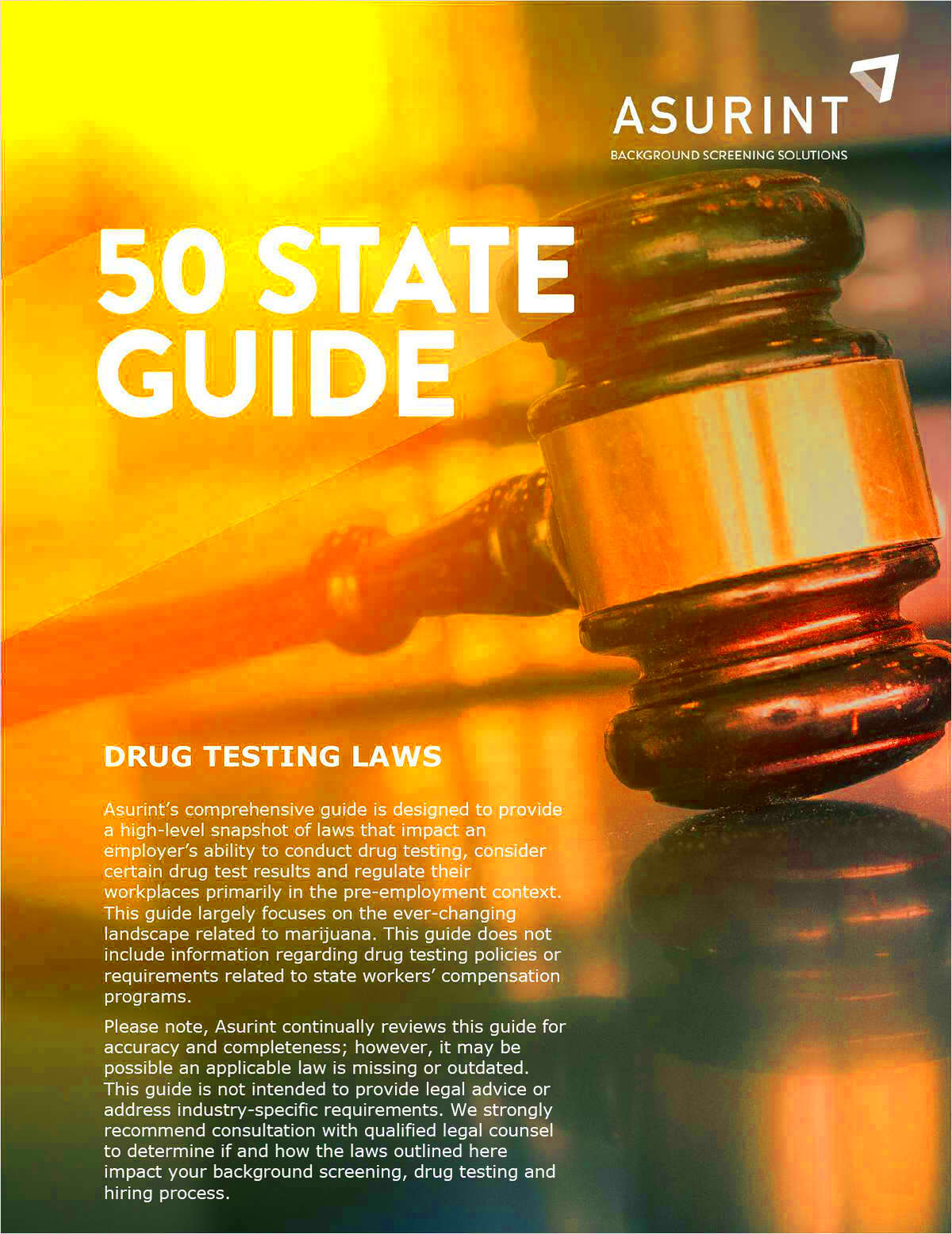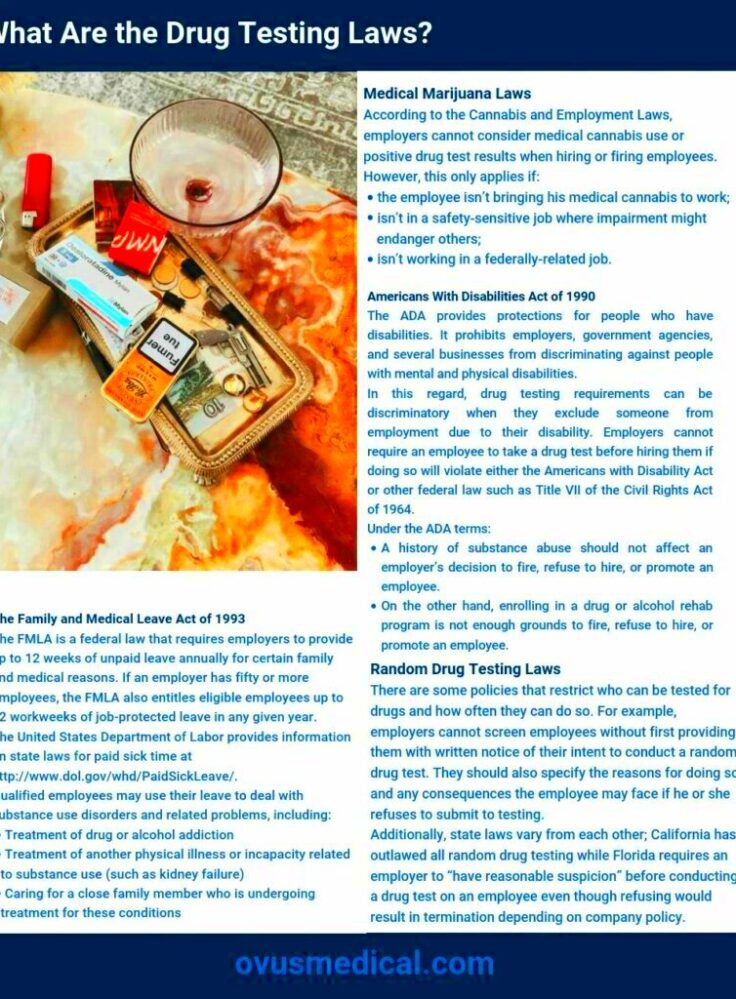Understanding Hawaii’s Drug Testing Laws
The laws regarding drug testing in Hawaii aim to strike a balance between the needs of employers and employees while ensuring a safe work environment. Having personally dealt with these laws I’ve witnessed their effects on both parties involved. In Hawaii drug testing is regulated by a combination of state rules and federal standards. It’s essential to be aware of the specific regulations that apply to various situations.
In Hawaii while there is no requirement for drug testing among all employees the law provides specific guidelines on when and how it can be carried out. Employers have the right to conduct tests in situations like before hiring after an incident or if there is reasonable suspicion of drug use. Nevertheless the law emphasizes that any testing should be done in a way that respects employees privacy and follows established protocols.
In roles where safety is paramount like in transportation or operating heavy machinery drug testing protocols are more rigorous. Companies need to make sure their drug testing policies adhere not only to state laws but also to federal regulations when relevant. It’s crucial for both workers and employers to grasp these legal aspects to navigate the intricacies of drug testing in Hawaii smoothly.
Types of Drug Testing Methods Used

Hawaii employs different approaches to drug testing to guarantee precise outcomes. Based on my personal observations I believe that every technique has its advantages and disadvantages, depending on the purpose of the test.
Here are some common drug testing methods:
- Urine Testing: This is the most widely used method. It’s relatively inexpensive and can detect drugs used in the past few days. However, it’s not foolproof and can sometimes produce false positives.
- Hair Testing: Hair tests can provide a longer history of drug use, up to 90 days. This method is less likely to be influenced by recent drug use but is more expensive.
- Saliva Testing: This method is non-invasive and can detect recent drug use, typically within the past 24 to 48 hours. It’s becoming increasingly popular due to its ease of administration.
- Blood Testing: Blood tests are highly accurate and can detect drugs in the bloodstream at the time of testing. However, they are more invasive and costly.
These approaches come with their own pros and cons, making it crucial to select the most suitable one based on the employers requirements and the circumstances surrounding the drug test. In my view being knowledgeable about these methods can assist both employers and employees in getting ready for what lies ahead.
Employers’ Rights and Responsibilities

In Hawaii employers have a well defined set of rights and obligations regarding drug testing. Through my collaboration with companies on matters I’ve witnessed the importance of employers navigating these regulations cautiously to steer clear of legal troubles.
Employers’ Rights:
- Implement Drug Testing Policies: Employers have the right to establish and enforce drug testing policies as long as they comply with state and federal laws.
- Test for Drugs: Employers can require drug tests for pre-employment screening, random testing, or following accidents, provided they follow proper procedures.
- Take Disciplinary Action: Based on test results, employers can take appropriate disciplinary actions, including termination, if the drug use policy is violated.
Employers’ Responsibilities:
- Respect Privacy: Employers must ensure that drug testing is conducted in a way that respects the privacy of employees and maintains confidentiality.
- Provide Clear Policies: It’s essential to communicate drug testing policies clearly to all employees and ensure they understand the procedures and consequences.
- Follow Legal Procedures: Employers must adhere to all legal requirements for drug testing, including obtaining consent and following proper protocols to avoid claims of unfair treatment.
In my view finding the right balance between upholding a drug free workplace and honoring employee rights is crucial. Employers who navigate this issue effectively can foster a safer and more efficient work setting all while staying compliant with the law.
Employees’ Rights and Protections

Gaining insight into your rights as an employee in Hawaii can be really eye opening, particularly regarding drug testing. Based on my experiences with the system I’ve realized how crucial it is for workers to know about these safeguards to protect their interests. In Hawaii workers have specific protections in place, during drug testing processes.
Privacy and Confidentiality: Employees have a right to privacy, and this extends to drug testing. Testing procedures must be conducted discreetly, and the results must be kept confidential. Employers are required to protect personal information and share test results only with authorized individuals.
Consent and Notification: Before a drug test is administered, employees must give informed consent. Employers should clearly explain the testing procedures, the reasons for the test, and how the results will be used. This transparency helps ensure that employees are fully aware of what to expect.
Challenge Results: If an employee believes that a drug test result is inaccurate or unfair, they have the right to challenge it. Employees can request a retest or provide evidence to dispute the results. It’s essential to know that there are procedures in place to address these disputes fairly.
Protection Against Retaliation: Employees are protected from retaliation if they refuse to take a drug test or contest a positive result. Employers cannot take adverse actions against employees, such as termination or demotion, solely based on their decision to challenge a test result.
From what Ive seen being aware of these rights can really have an impact. It gives workers the confidence to advocate for themselves and helps ensure that drug testing is carried out in a fair and respectful manner.
Drug Testing for Safety-Sensitive Positions

In roles where safety is paramount drug testing becomes even more vital. Through my experience across different sectors I have witnessed the significance of ensuring that people in these positions are free from substances. These roles hold importance as they directly influence the well being of both the workplace and society at large.
What Are Safety-Sensitive Positions? Safety-sensitive positions are jobs where impairment could lead to serious accidents or injury. These roles often include:
- Transportation: Drivers, pilots, and other transport operators
- Heavy Machinery Operators: Individuals operating cranes, forklifts, or construction equipment
- Healthcare Workers: Roles involving patient care or handling medications
Why Drug Testing Is Essential: In these roles, even minor impairment can lead to catastrophic outcomes. Drug testing helps ensure that employees are in a fit state to perform their duties safely. It is not just a precaution but a necessity to maintain a safe working environment.
Testing Procedures: For these positions, drug testing is often more rigorous. Tests may be conducted randomly, periodically, or after specific incidents. Employers in these sectors must adhere to strict guidelines to ensure that testing is conducted fairly and accurately.
I believe that although drug testing in jobs is seen as intrusive it plays a vital role in avoiding accidents and safeguarding public well being. Its aimed at fostering a workplace culture where everyone can have confidence that their coworkers are suited for their positions.
Legal Consequences of Positive Drug Tests
Dealing with the repercussions of a drug test can be challenging, especially when it comes to understanding the possible legal ramifications. From what I’ve witnessed and learned these consequences can differ significantly based on the situation and the specific field in question.
Employment Actions: The most immediate consequence of a positive drug test is often related to employment. This can include:
- Termination: Many employers have strict policies that result in termination following a positive test.
- Suspension: In some cases, employees might face suspension while the results are reviewed or while they seek treatment.
- Disciplinary Actions: Depending on the company’s policies, other disciplinary actions might be taken, such as mandatory counseling or drug rehabilitation programs.
Legal Implications: Beyond employment consequences, a positive drug test can have legal ramifications, especially in regulated industries or safety-sensitive roles. These might include:
- Fines and Penalties: Certain industries may face fines or penalties for not complying with drug testing regulations.
- Legal Claims: If an employee believes that the drug testing process was unfair or discriminatory, they may file a legal claim.
Impact on Future Employment: A positive drug test can also affect future job prospects. It might be necessary to explain the situation to potential employers, which can be challenging. However, some employers are willing to consider candidates who have taken steps to address the issue.
In my opinion although the repercussions may be significant they also present an opportunity for people to reach out for assistance and bring about positive transformations. Dealing with these outcomes through support and empathy can pave the way, for healing and personal development.
Recent Changes and Updates in Drug Testing Laws
Keeping abreast of shifts in drug testing regulations is essential for employers and workers alike. I have seen how changing rules can affect company policies and individual lives. In Hawaii there have been recent changes to drug testing laws aligning with wider movements in workplace safety and employee rights.
New Regulations: Recently, Hawaii has introduced several changes aimed at enhancing fairness and accuracy in drug testing:
- Enhanced Privacy Protections: New laws mandate stricter privacy measures to ensure that drug testing is conducted with greater respect for individual confidentiality. Employers must now follow more rigorous protocols to secure personal data.
- Expanded Employee Rights: Updates have strengthened employees’ rights to contest drug test results and have led to clearer guidelines on how to address disputes. This shift aims to provide a more balanced approach in handling positive test results.
- Increased Focus on Education: Employers are now required to provide more comprehensive education about drug testing policies and procedures. This move is intended to ensure that employees fully understand their rights and obligations.
Impact of Changes: From my experience, these changes reflect a growing awareness of the need for fairness and transparency in drug testing. They help create a more equitable environment where both employees and employers can navigate drug testing with greater confidence and clarity.
Staying up to date with these changes is crucial. It helps avoid problems and makes sure that both sides are aware and ready for any shifts that could impact their rights and obligations.
How to Challenge a Drug Test Result
Navigating a positive drug test outcome can be tough but understanding the steps to contest it can have a big impact. I’ve witnessed firsthand the intricacies involved in challenging a drug test result and while it can be challenging it is an essential entitlement for workers who feel that the result is inaccurate or unjust.
Steps to Challenge a Result:
- Request a Retest: If you believe the initial result is flawed, you can request a retest. This is often the first step in disputing the result and can provide additional evidence to support your case.
- Gather Evidence: Collect any relevant evidence that might explain or challenge the positive result. This could include medical records, prescription details, or proof of potential contamination.
- Review Testing Procedures: Examine the procedures followed during the drug test to ensure they were conducted properly. Inaccuracies in the testing process can sometimes lead to incorrect results.
- Consult a Legal Expert: Seeking advice from a legal expert specializing in employment law can provide guidance on how to proceed. They can help you understand your options and represent your interests effectively.
Personal Insight: I’ve found that being proactive and informed about your rights can make a significant difference in these situations. While challenging a drug test result might seem daunting, knowing the steps to take can help you address the issue more effectively and protect your rights.
FAQ
What should I do if I receive a positive drug test result?
If you get an result the initial action is to ask for a retest and collect any information that could clarify or challenge the outcome. Take a look at the methods employed during the testing process and seek advice from a professional if necessary.
Can an employer fire me based on a positive drug test?
Absolutely employers have the right to impose consequences such as firing you if you test positive for drugs. However they need to adhere to their set protocols and uphold your rights throughout the procedure.
Are there any recent changes in drug testing laws that I should be aware of?
Indeed the latest changes involve stronger privacy safeguards broader employee rights to challenge outcomes and a heightened emphasis on informing staff members about drug testing procedures.
How can I ensure that my drug test is conducted fairly?
To be fair it is important to be aware of the testing procedures and your entitlements. Make sure that the employer adheres to the protocols and keeps everything confidential during the process.
What if I believe the testing process was flawed?
If you have concerns about the accuracy of the testing process you can ask for a retest and examine the procedures that were followed. Gather any information that could back up your assertion and seek advice from a professional for additional support.
Conclusion
Grasping the nuances of drug testing laws in Hawaii is crucial for employees and employers alike to navigate the intricacies of the workplace. Based on my observations I have witnessed how these regulations can significantly impact day to day operations and personal lives. Keeping abreast of updates being aware of your rights and understanding how to contest test outcomes can make a difference. It’s about upholding fairness and transparency while prioritizing safety in the work setting. By remaining informed and taking measures both employees and employers can effectively manage drug testing policies promoting a more harmonious and respectful work atmosphere. Remember that staying informed and understanding your rights is the key, to successfully overcoming these challenges.


